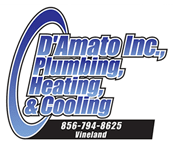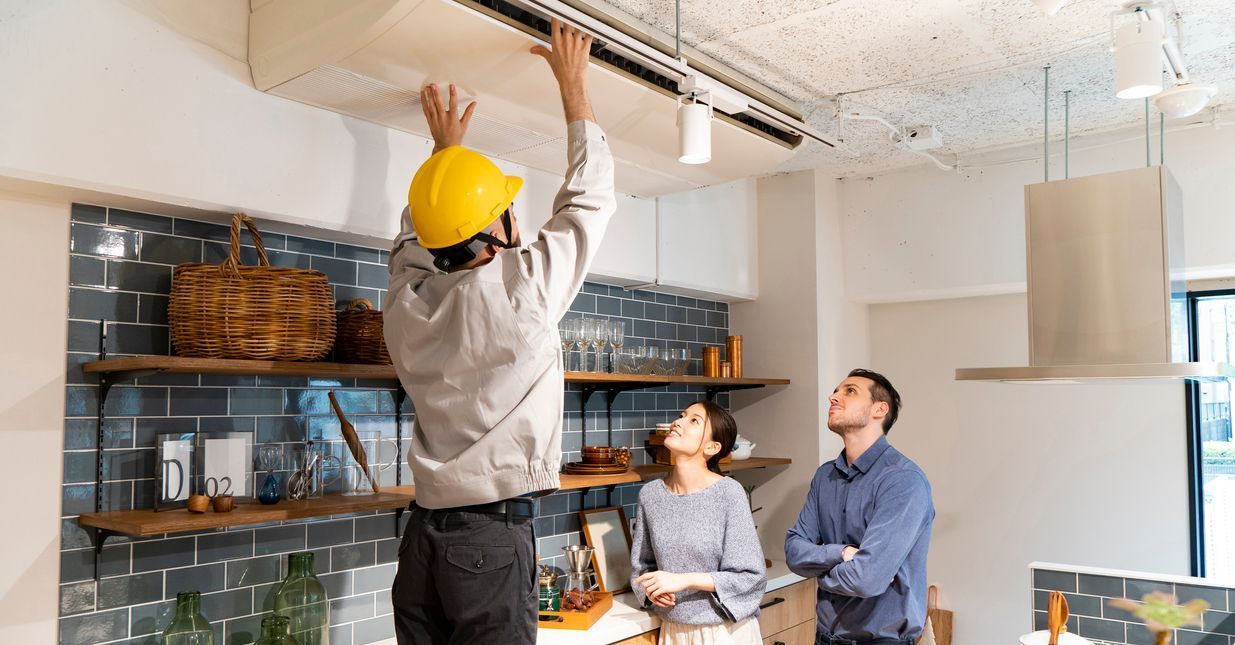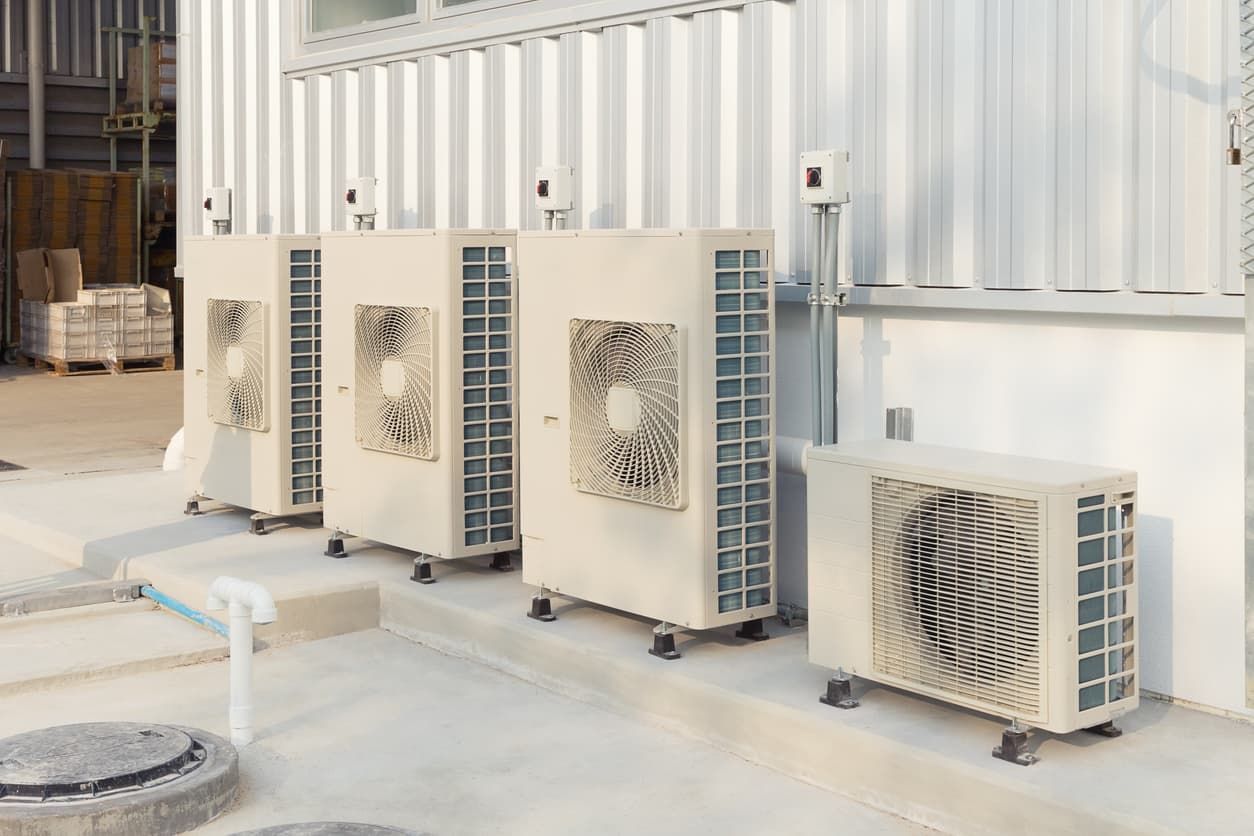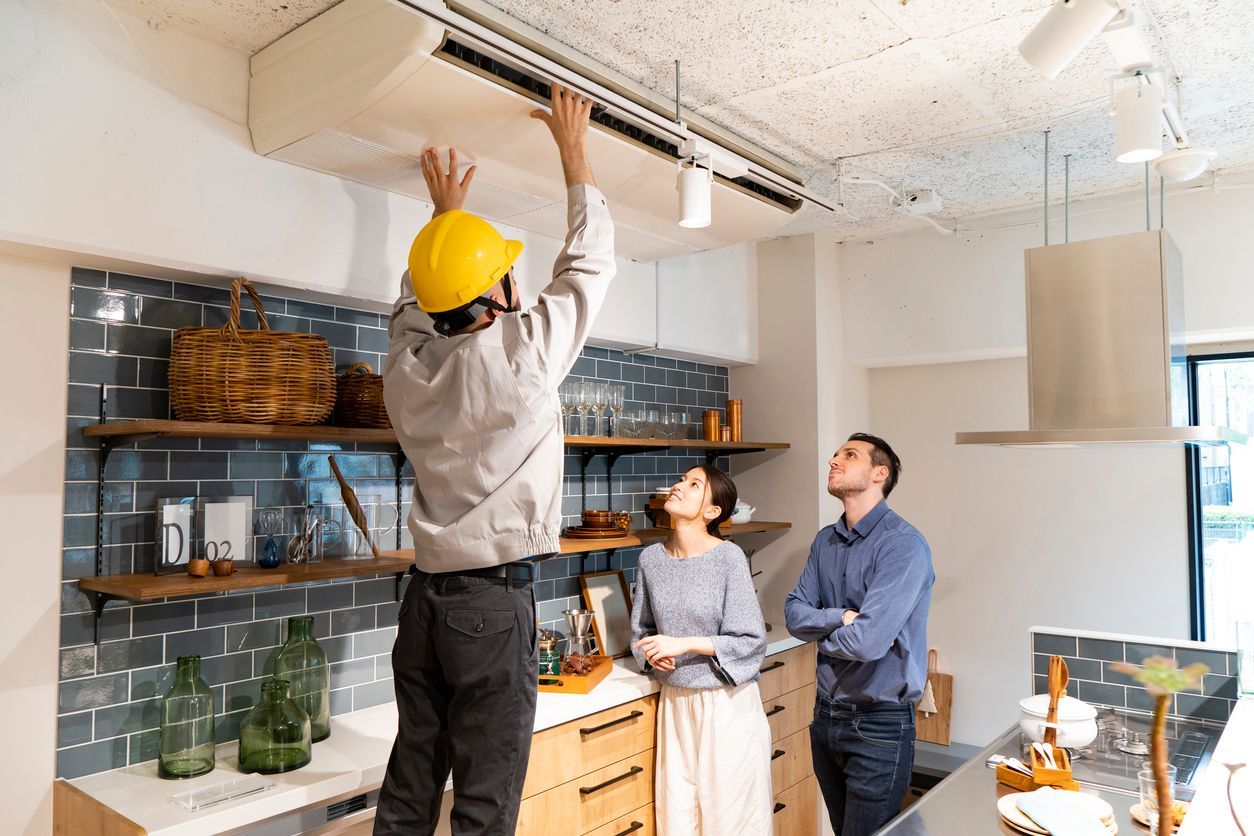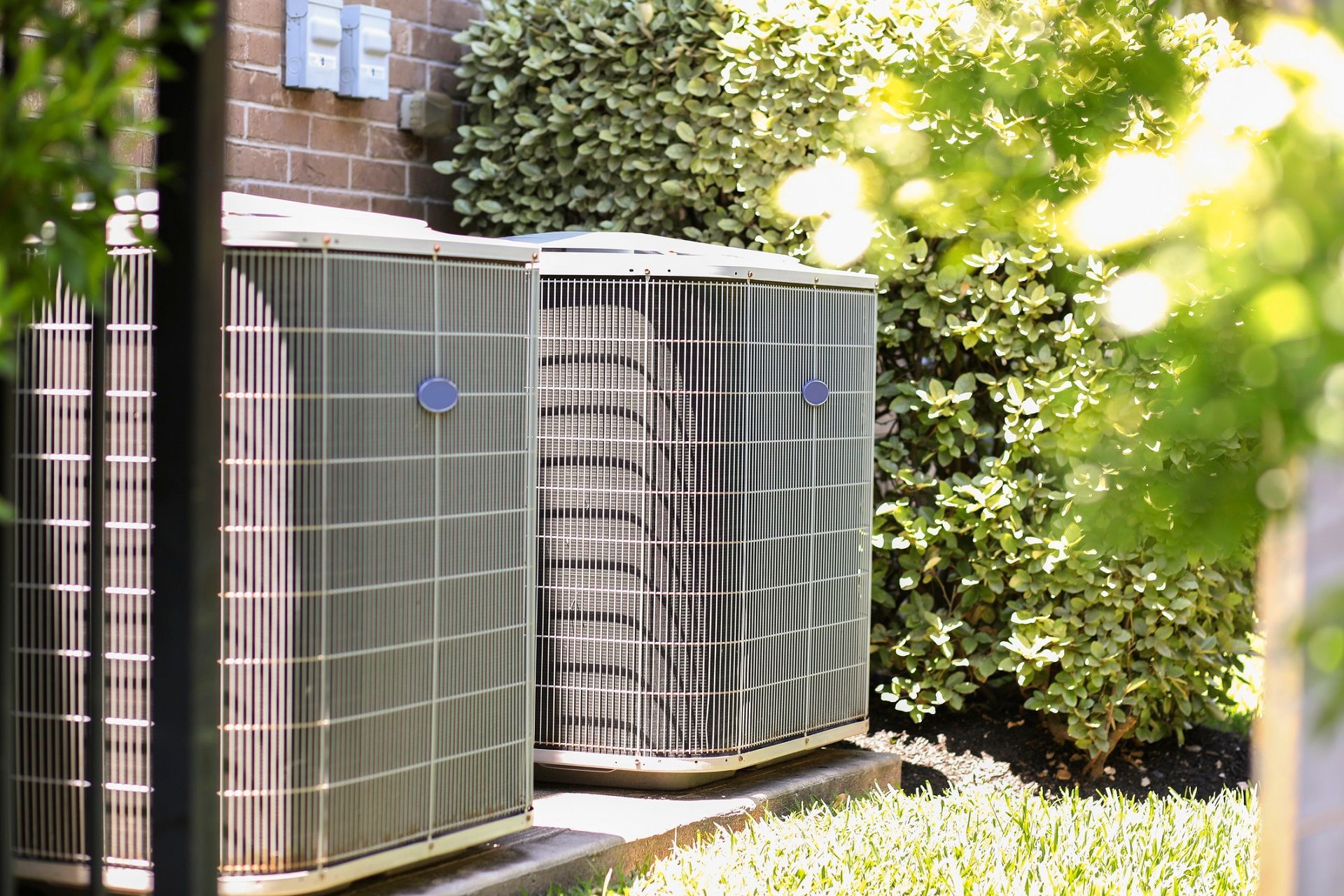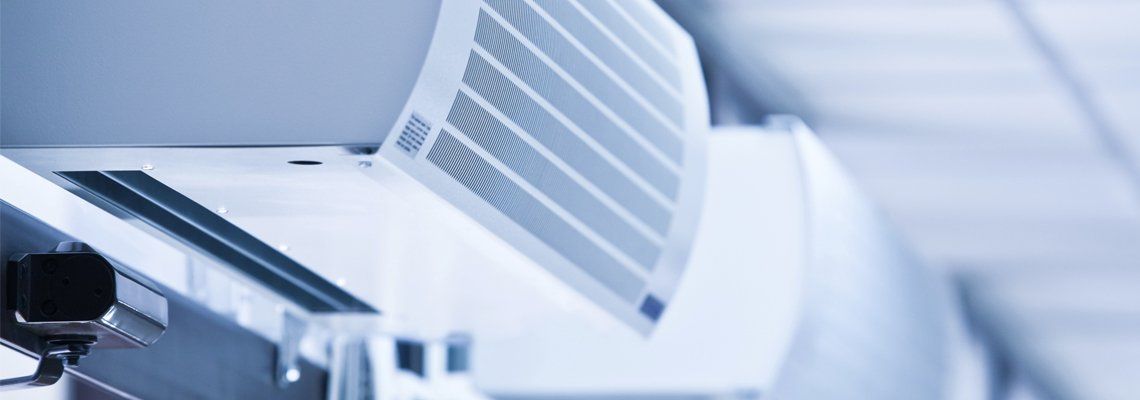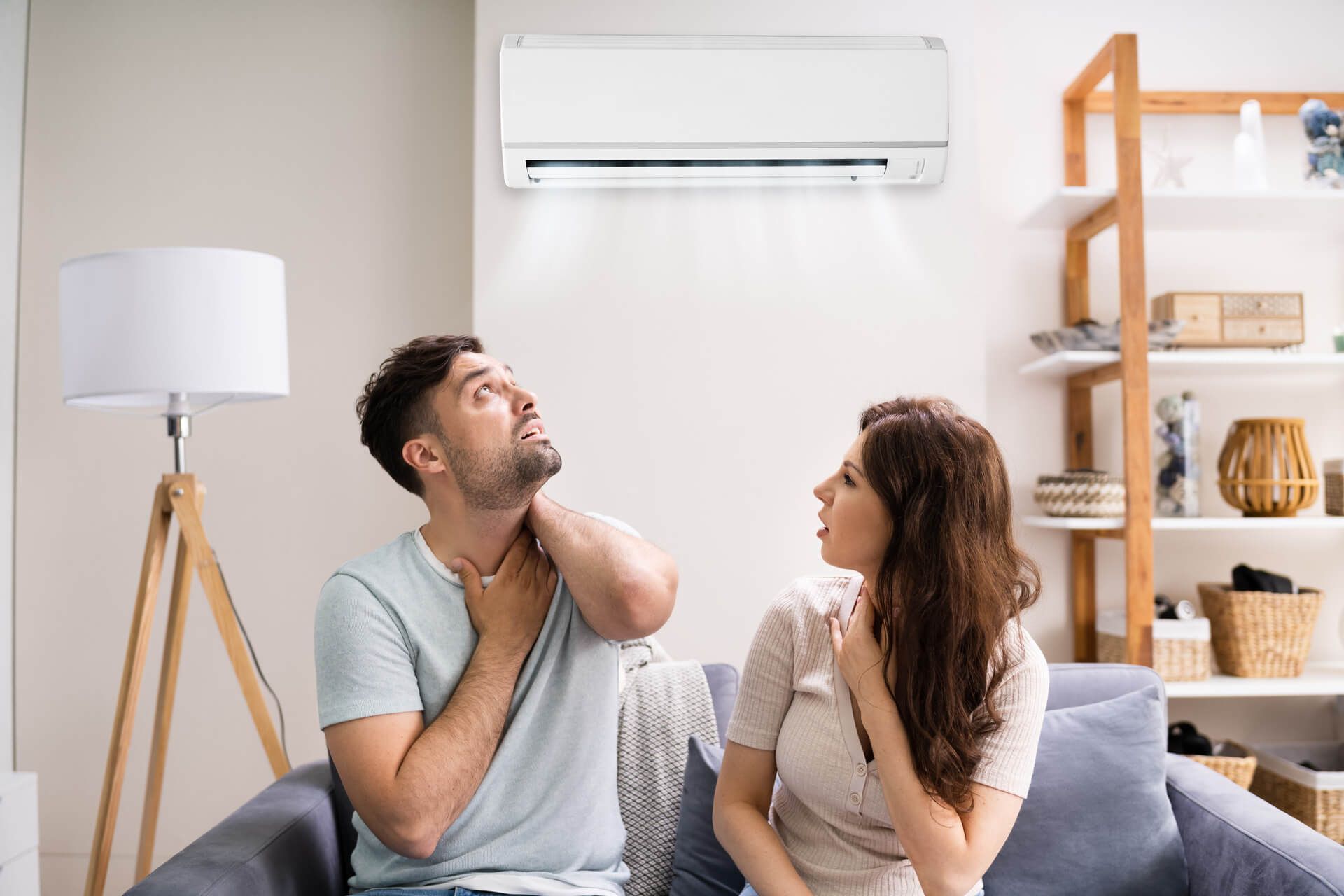damatoplumbing@gmail.com

What Type of HVAC System is Right for Your Home?
Choosing the right HVAC (Heating, Ventilation, and Air Conditioning) system for your home is not just important, it's crucial. The correct system can make your home a year-round haven of comfort, while an ill-suited one can lead to a multitude of problems such as poor air quality, high energy bills, and a less-than-ideal indoor climate. Your HVAC system is a long-term investment, therefore, it should be chosen wisely, taking into consideration several factors such as the size of your home, the climate in your region, and your personal preferences.
This article aims to guide you through the process of
choosing the best HVAC system for your home. We will delve into the different types of HVAC systems available in the market, their pros and cons, and the factors you need to consider before making your decision. We will also discuss energy efficiency, cost implications, and the importance of professional installation and regular maintenance. By the end of this article, you should be equipped with the knowledge required to make an informed choice about the best HVAC system for your home.
Understanding HVAC Systems
Understanding HVAC Systems is the first step towards making an informed decision about the best type of system for your home. HVAC stands for Heating, Ventilation, and Air Conditioning. As the name suggests, an HVAC system is responsible for maintaining the indoor temperature and air quality of your home, making it comfortable and safe year-round.
Several Components of HVAC Systems
A typical HVAC system is composed of several components, each serving a unique function. These components include a furnace, which heats the air; an air conditioner, which cools the air; ductwork, which distributes the air throughout your home; a thermostat, which controls the system; and an air filter, which purifies the air. Some systems may also include additional elements like humidifiers or dehumidifiers to adjust the humidity levels, or a heat pump for more efficient heating and cooling.
How Does an HVAC System Work
How does an HVAC system work? The process begins with the thermostat. Based on your set preferences, the thermostat signals the system to either heat or cool the air. If heating is required, the furnace kicks in, warming the air. This warm air is then pushed through the ductwork by a blower and distributed throughout your home. If cooling is needed, the air conditioner removes heat and humidity from the air, cools it, and then circulates it back into the house. In both scenarios, the air filter works continuously to remove contaminants from the air before it is circulated.
Understanding the basics of HVAC systems is crucial while making a decision. You should consider factors like the size and layout of your home, your personal comfort preferences, and your budget. In the following sections, we will delve deeper into different types of HVAC systems, their energy efficiency, and cost implications to help you determine the best system for your home.
Different Types of HVAC Systems
Central Air Conditioning System
Upon comprehending the basic structure and function of an HVAC system, it's easier to delve into the different types available. The first, a Central Air Conditioning System, is a popular choice for many homeowners. It consists of a network of ducts and a central unit that cools and dehumidifies the air before circulating it throughout your home. This system is known for its efficiency and consistency in maintaining a uniform temperature in large spaces.
Ductless, Mini-Split Air Conditioners
Second on the list are Ductless, Mini-Split Air Conditioners. As the name implies, these do not require ductwork for operation, making them an ideal choice for homes that lack the space for duct installation. They consist of an outdoor compressor unit and one or more indoor air handling units. Each indoor unit can operate independently, providing personalized temperature control in different zones of your home.
Heat Pumps
Heat Pumps, another type of HVAC system, can serve dual purposes. During the warmer months, they work like an air conditioner, removing heat from inside the home to cool it. In cooler months, they reverse the process, extracting heat from the outdoors and using it to warm the home. They are highly energy-efficient and can be a great option if you live in a mild climate.
Furnaces
Furnaces, on the other hand, are a traditional heating system that uses a heat exchanger to warm the air. They can run on various fuel sources including natural gas, oil, or electricity. Furnaces are known for their long lifespan and ability to produce a significant amount of heat, making them suitable for colder climates.
Packaged Heating & Air Conditioning Systems
Lastly, Packaged Heating & Air Conditioning Systems are compact units that combine both heating and cooling functions. They are typically installed outdoors or in compact spaces and are an excellent choice for homes with limited indoor space. These systems are efficient and easy to maintain, offering both heating and cooling solutions in a single package.
Understanding these different types of HVAC systems can assist you in making an informed decision about which one is the most suitable for your home, based on your specific needs and the climate in your area.
Factors to Consider When Choosing an HVAC System
The Size of Your Home
When choosing the ideal HVAC system for your home, it's crucial to consider a variety of factors. First and foremost, the size of your home plays a significant role. Larger homes may benefit from a Central Air Conditioning System due to its efficiency in cooling vast spaces, while smaller homes or apartments may find a Ductless, Mini-Split Air Conditioner more suitable due to its capacity for zone-specific temperature control.
The Climate and Geography of Your Location
Secondly, the climate and geography of your location are critical factors. For instance, Heat Pumps can be an excellent choice in milder climates due to their energy efficiency and dual functionality, being able to heat and cool your home. However, in colder climates, a furnace might be a better option due to its superior heating capacity and longevity.
Energy Efficiency
Energy efficiency is another essential factor to consider. With energy costs continually rising, having an energy-efficient HVAC system can save you significant amounts of money in the long run. Heat Pumps, for example, are known for their energy efficiency. However, the initial cost may be high.
Your Budget
Your budget is another crucial factor. While higher-end models like Ductless, Mini-Split Air Conditioners, or Heat Pumps can offer more features and better energy efficiency, they come with a higher price tag. On the other hand, Furnaces, despite their heating capacity and longevity, can be more affordable.
Consider the Maintenance Requirements
Lastly, consider the maintenance requirements of the HVAC system. Some systems, like Packaged Heating & Air Conditioning Systems, are compact and relatively easy to maintain. Other systems, like Central Air Conditioning Systems, may require more frequent maintenance. Understanding the maintenance needs of each system can help you make a more informed decision.
Pros and Cons of Different HVAC Systems
HVAC Systems
In the realm of HVAC systems, a central air conditioning system is a popular choice, especially for larger homes. The main advantage stems from its consistency in delivering cool air to every room through ductwork. This system is also energy efficient, leading to lower utility bills in the long run. However, its drawbacks include expensive installation costs and the potential for uneven cooling if ducts aren't properly maintained or insulated.
Ductless, Mini-Split
Ductless, mini-split air conditioners are an excellent option for smaller homes or those without existing ductwork. These systems are easy to install, highly efficient, and allow for targeted cooling in specific areas. However, they can be more expensive per zone cooled and may not be as effective in larger homes.
Heat Pumps
Heat pumps are highly efficient systems that can provide both heating and cooling, making them ideal for mild climates. They are environmentally friendly and can lead to significant energy savings. However, their efficiency drops in extremely cold climates, and they may require a secondary heat source, adding to the cost.
Furnaces
Furnaces are a reliable choice for colder climates. They can run on various types of fuel, including gas, oil, or electricity, offering flexibility. While they can provide powerful heating, they lack the dual function of cooling, potentially necessitating an additional system for warmer months. They can also be less energy efficient compared to other systems.
Packaged Heating and Air Conditioning System
Lastly, a packaged heating and air conditioning system is a compact solution that houses both heating and cooling units in one outdoor system. It is ideal for homes with limited indoor space, and its installation is typically less invasive. However, these systems may not be as efficient as separate units, and being exposed to outdoor elements can lead to higher maintenance needs.
How to Maintain Your HVAC System
Regular Cleaning
After choosing the HVAC system that best suits your home, its longevity and efficiency depend on how well it is maintained. Regular cleaning and maintenance are essential steps in preserving the functionality of your HVAC system. Neglecting to clean your HVAC system can result in dust and debris buildup which could lead to poor performance and even system failure. It's recommended that filters are changed every 1-3 months and outdoor units are kept clear of leaves and other debris to ensure optimal operation.
Professional Inspections
In addition to regular cleaning, arranging professional inspections is crucial. A professional HVAC technician can inspect your system for any potential issues that may not be visible to the untrained eye. They can check the refrigerant levels, test for leaks, and inspect the electrical connections, among other things. Regular professional inspections can help you catch minor issues before they turn into major problems, saving you money in the long run.
Timely Repairs and Replacements
Even with regular cleaning and inspections, HVAC systems can still experience wear and tear. Timely repairs and replacements are key to keeping your HVAC system running efficiently. If you notice any unusual noises or smells, or if your system is not heating or cooling effectively, it may be time for a repair or replacement. Regularly servicing your HVAC system can increase its lifespan, prevent unexpected breakdowns, and ensure it operates at peak efficiency.
In conclusion, whether you have a central air conditioning system, a ductless mini-split air conditioner, a heat pump, a furnace, or a packaged heating and air conditioning system, regular cleaning, professional inspections, and timely repairs and replacements are necessary to keep your HVAC system running smoothly.
Conclusion
In conclusion, choosing the right HVAC system for your home is a decision that shouldn't be taken lightly. This decision will not only affect the comfort and air quality in your home but also the efficiency of energy use and the cost of maintenance. The types of HVAC systems vary widely, each with its own set of benefits and drawbacks depending on the unique needs of your home. From central air systems to ductless mini-splits, each system has its own performance characteristics and maintenance requirements.
A well-chosen HVAC system that fits your home's layout, size, and climatic conditions can provide a comfortable indoor environment, lower energy bills, and increase the value of your home. Conversely, choosing the wrong system can lead to discomfort, high energy costs, and frequent maintenance issues. Remember, regular cleaning and professional inspections are paramount to maintaining your HVAC system, regardless of the type. Dust and debris buildup can decrease system performance and lead to failure, while professional inspections can catch minor issues before they turn into costly repairs. Timely repairs and replacements not only keep your system running efficiently but also extend its lifespan.
Given the complexity of
determining the right HVAC system for your home, it's highly recommended to consult with a professional. HVAC professionals are equipped with the knowledge and skills to assess your home's unique needs and recommend the most suitable system. They can also guide you on proper maintenance practices to ensure your HVAC system performs optimally throughout its lifespan. With professional guidance, you can make a well-informed decision that provides comfort, efficiency, and cost-effectiveness in the long run.
At D'Amato Plumbing, Heating, and Cooling INC., discover the perfect harmony of comfort and efficiency as our experts guide you through selecting the ideal HVAC services in Vineland and Cumberland County, NJ for your home.
Name, Address, and Phone
D'Amato Plumbing, Heating, and Cooling INC.
1200 West Blvd, Vineland, New Jersey, 08360, US
856-556-3434
Social Media’s
https://www.facebook.com/DAmato-Plumbing-Heating-530817947105755/
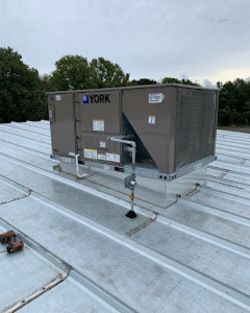
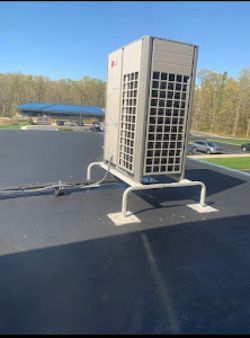
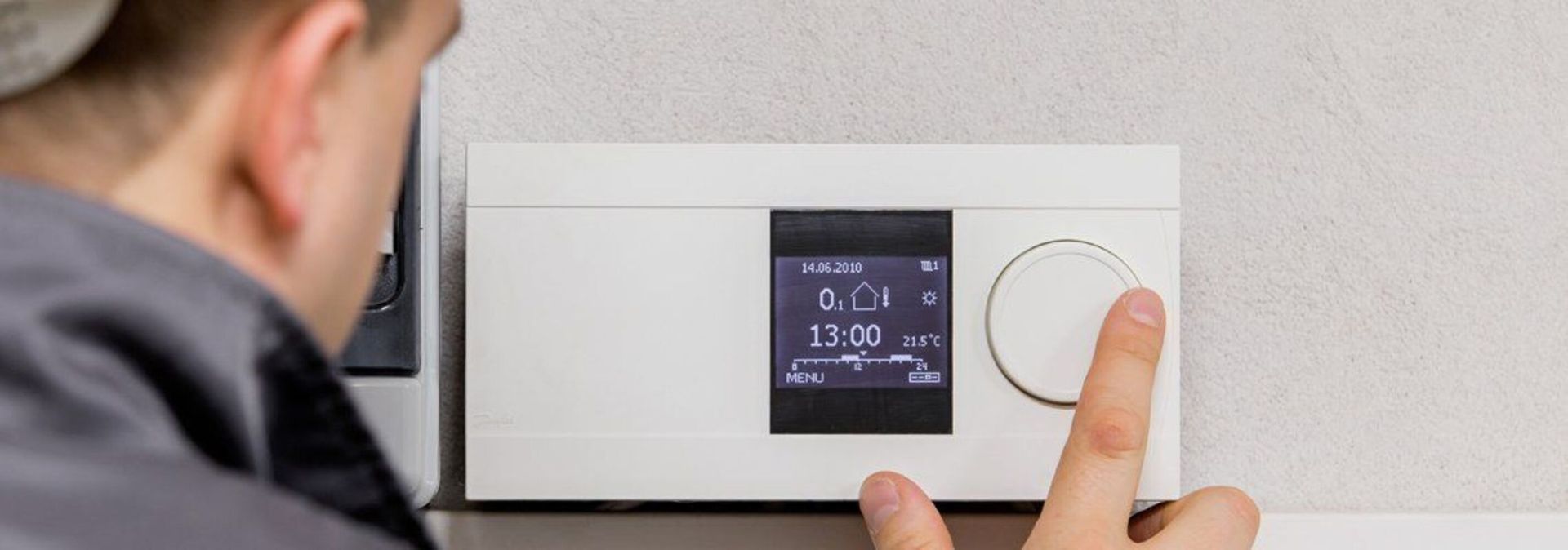
1200 West Blvd, Vineland, NJ 08360




